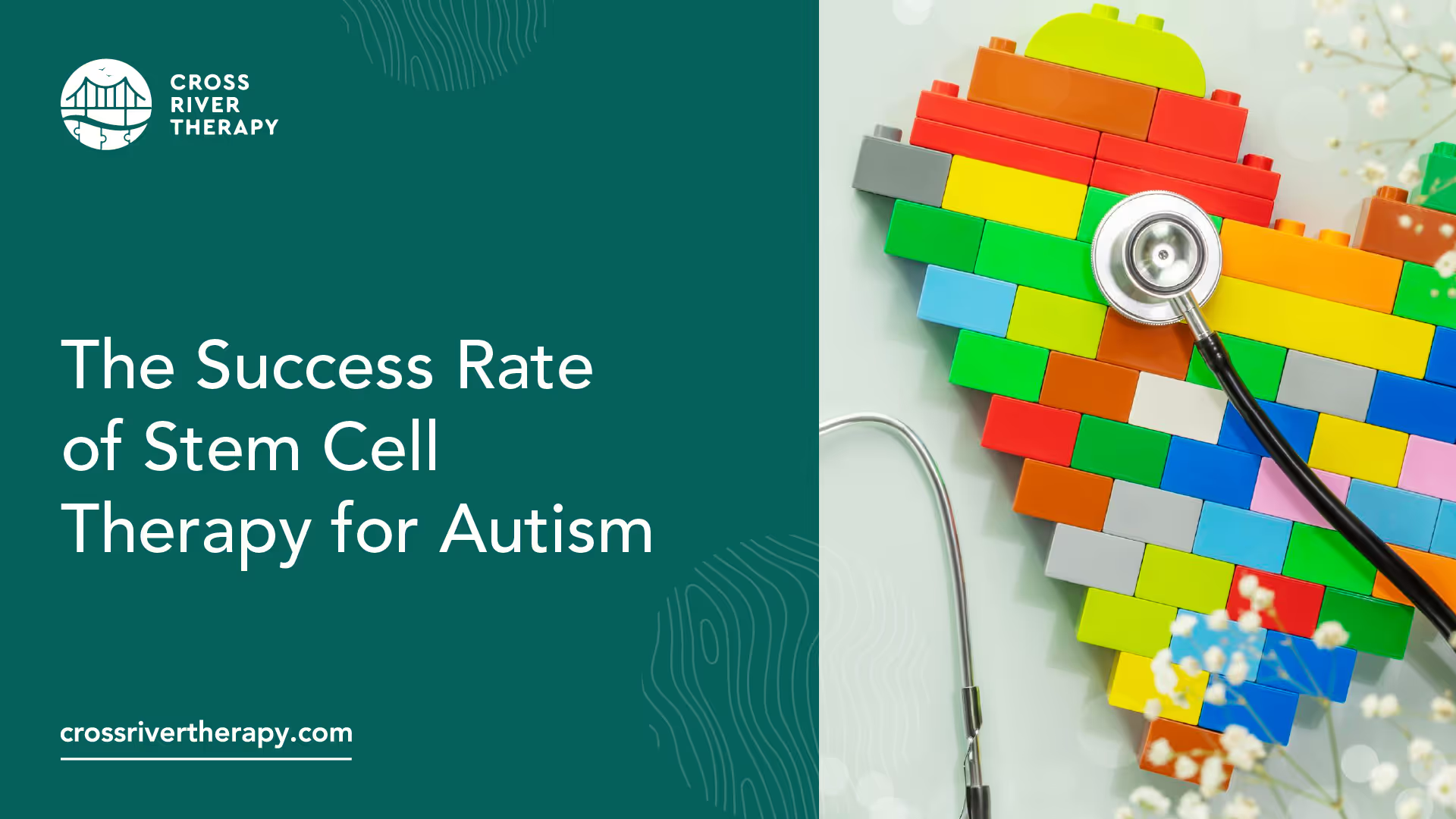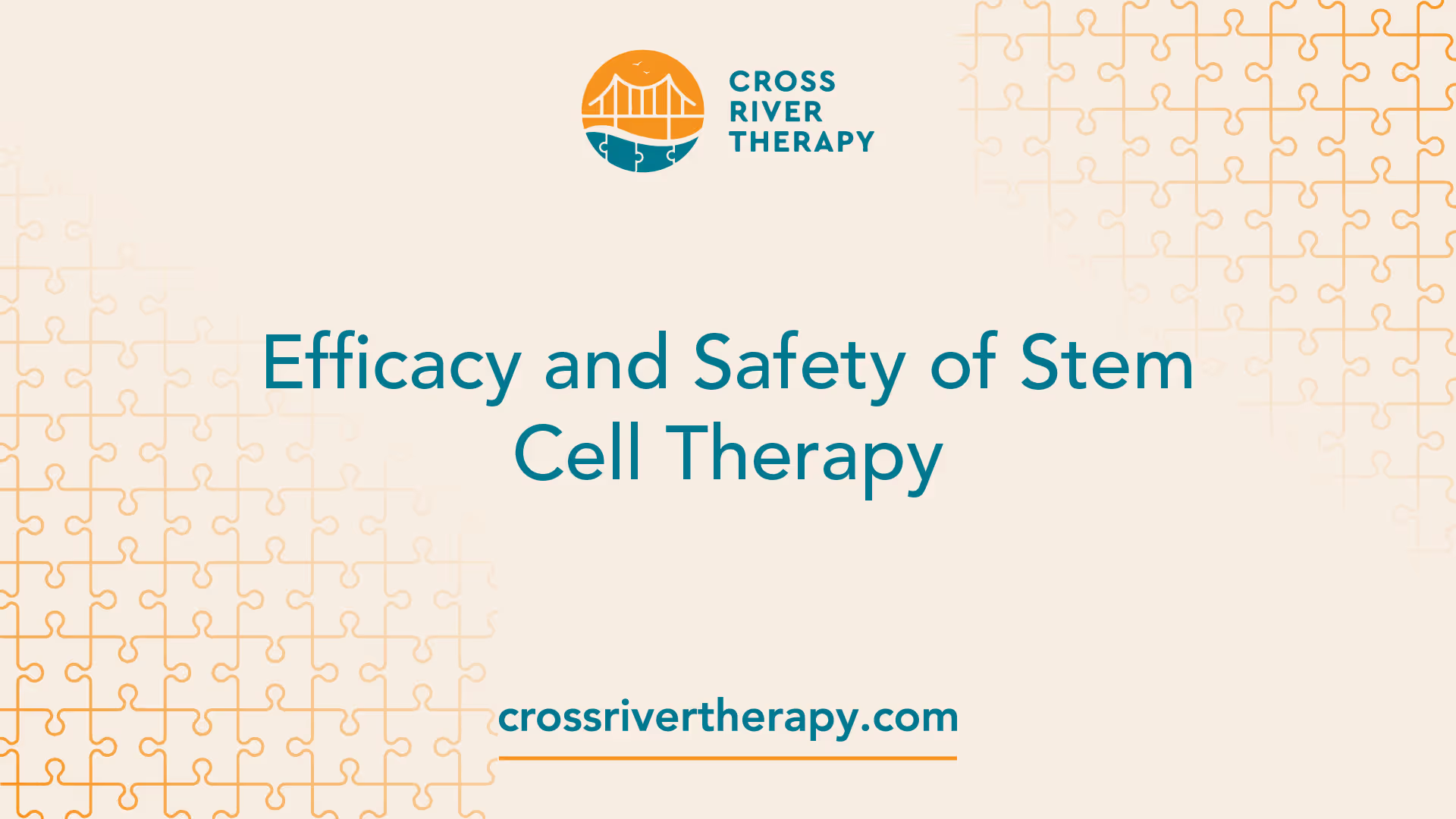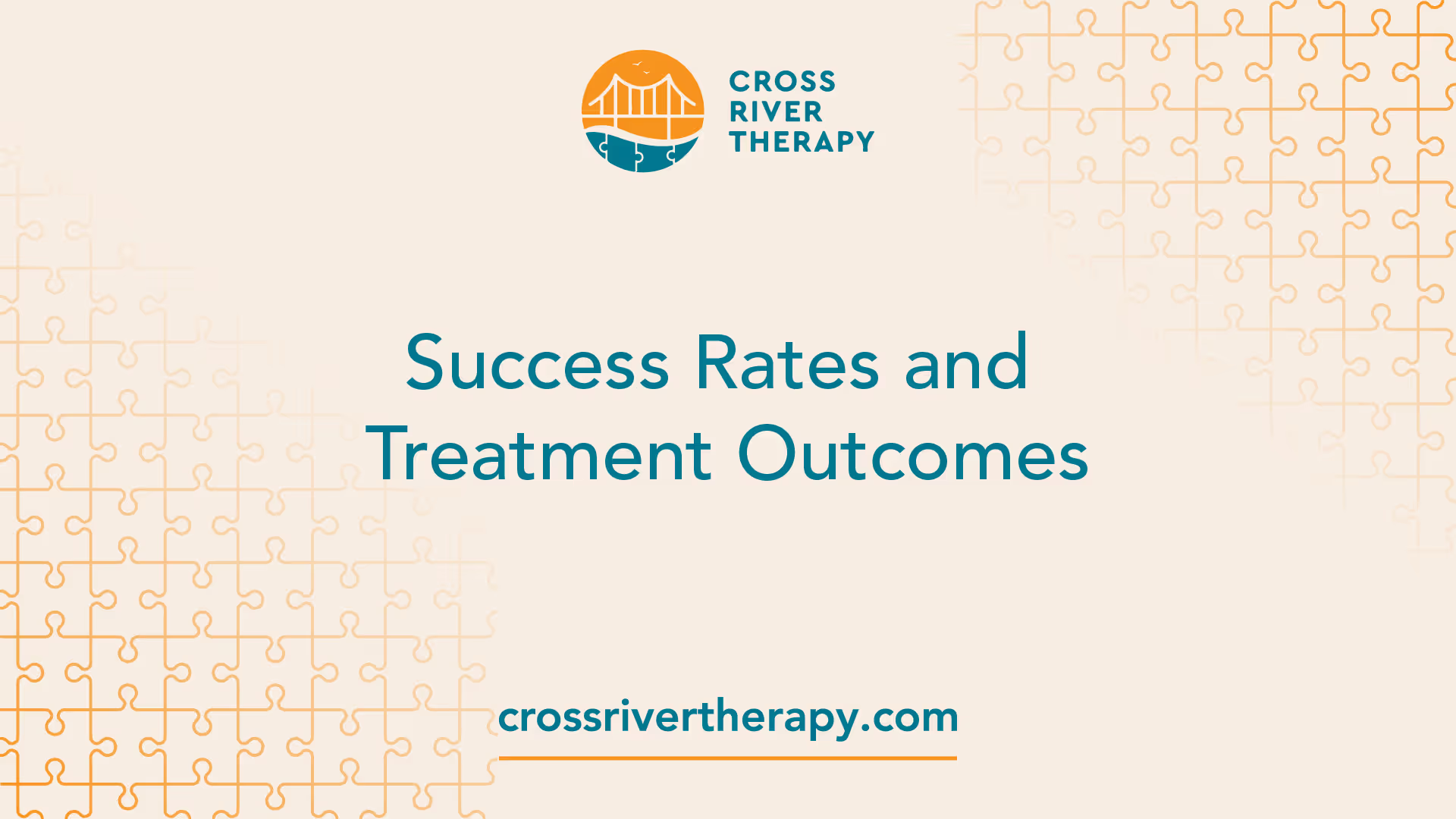The Success Rate of Stem Cell Therapy for Autism
Discover the stem cell therapy for autism success rate; explore hope, efficacy, and future directions.
Understanding Stem Cell Therapy for Autism
Delving into the realm of stem cell therapy for autism, it's essential to understand the basics of this therapeutic approach and the science underlying stem cells.

Overview of Stem Cell Therapy
Stem cell therapy for autism aims to target the biological factors associated with the disorder. It utilizes stem cells, which exhibit the unique potential to repair, regenerate, and replace damaged or dysfunctional cells within the body. This therapy is premised on the inherent abilities of stem cells to transform into different cell types, divide without limit, and potentially regenerate the entire body. The success rate of this treatment is influenced by several factors, including the patient's age, the duration of the disease, and the patient's overall condition [1]. As you navigate the landscape of stem cell therapy, our stem cell therapy autism reviews offer valuable insights.
Scientific Background of Stem Cells
Mesenchymal stem cells (MSCs) are among the primary cell types used in this therapy. These cells possess immunomodulatory properties, making them potential candidates for treating autism spectrum disorders (ASDs). Clinical trials have demonstrated that MSCs can secrete neurotrophic factors and exhibit neuroprotective effects. They've been used effectively in various neurological preclinical models [2].
Fetal stem cells (FSCs) also play a pivotal role in this therapy. Clinical trials involving FSCs have shown improvements in sociability, cognitive ability, and behaviors in children with autism, without adverse effects. The transplantation of FSCs was found to be safe and well-tolerated, with enhanced cell-mediated immunity observed post-treatment.
In understanding stem cell therapy for autism, one must consider both the therapeutic potential and the scientific rigor underlying this approach. As we delve deeper into the efficacy, safety, and success rates of this treatment, it becomes clear that stem cell therapy holds promise as a potential intervention for autism. For more information, visit our page on is stem cell therapy for autism fda approved?.
Efficacy and Safety of Stem Cell Therapy
While stem cell therapy is an exciting frontier in medical science, it's crucial to consider the efficacy and safety of the treatment, particularly when it pertains to Autism Spectrum Disorder (ASD).

Clinical Trials and Research Findings
Research on the use of stem cells for ASD is currently in the clinical trials stage. Preliminary results show potentially encouraging safety aspects, but the evidence is not yet sufficient for clinical application NCBI.
Most studies on stem cell therapy for ASD lack standardized evaluation protocols and treatment methods and have small sample sizes. This means that the robust and significant clinical differences necessary to confirm the effectiveness of stem cell therapy are not yet observed in these studies NCBI.
The studies have shown contrasting results regarding the effectiveness of stem cell therapy for ASD. Some studies reported no significant changes in behavioral tests, while others reported improvements in socialization, communication, and adaptive behaviors. It's important to note that these improvements may align with the natural course of the disorder, and not necessarily as a result of the stem cell therapy NCBI.
Given the lack of sufficient scientific rationale and limited clinical evidence supporting stem cell therapies for ASD, parents should consider these factors when seeking stem cell therapy for autism.
Potential Risks and Complications
The potential risks and complications associated with stem cell therapy should not be overlooked. The transition to the clinical application of stem cell transplants for ASD without following the necessary steps of biomedical research poses risks to children and their families NCBI.
Regulatory agencies need to monitor the marketing and commercialization of stem cell treatments in the absence of solid evidence to prevent harm. As a parent, it's essential to educate yourself about the potential risks and complications associated with stem cell therapy. Be sure to consult with your child's healthcare provider and consider the current FDA approval status of these treatments, which can be found in our article is stem cell therapy for autism fda approved?.
In conclusion, while the 'stem cell therapy for autism success rate' is a topic of ongoing research, it's crucial to consider the current findings, potential risks, and safety measures. Make sure to stay informed and consult with healthcare professionals to ensure the best decisions are made for your child's well-being.
Success Rates and Treatment Outcomes
Understanding the potential outcomes of stem cell therapy for autism is crucial for families considering this treatment option. This includes both the reported success rates and the improvements seen in individuals after undergoing therapy.

Reported Success Rates
Stem cell therapy for autism has shown promising results in various studies. According to GenCell, the treatment has a success rate of approximately 90%, with an 85% success rate in slowing the progression, halting, or even reversing the disease. Positive outcomes are evaluated based on improvements observed within one year following treatment, and the success rates can be further enhanced by repeating the treatment.
The Innate Healthcare Institute reports a similar success rate of around 90% ABTABA. It's important to note that the success rate of the treatment may be influenced by several factors, including the patient's age, the duration of the disease, and the patient's overall health state.
Treatment Outcomes and Improvements
The effectiveness of stem cell therapy for autism is not only gauged by success rates but also by the improvements seen in the individuals undergoing the treatment. Most children treated at the Innate Healthcare Institute ABTABA experienced significant improvements within the first few weeks to months. These enhancements included better sleep, behavior, attention, listening skills, reduced tantrums, and increased socialization. Improvements in verbal skills and speech may take longer to develop.
These improvements can significantly enhance the quality of life for individuals with autism and their families. For example, better sleep can lead to improved behavior and cognitive functioning, while increased socialization can enhance relationships and overall well-being.
It's crucial to remember that while these treatment outcomes are promising, stem cell therapy is a medical procedure with potential risks and complications. Therefore, it should always be considered in consultation with qualified healthcare professionals. For more information on stem cell therapy for autism, consider reading our stem cell therapy autism reviews or explore is stem cell therapy for autism fda approved?.
Specific Stem Cell Types Used
In the pursuit of unlocking hope through stem cell therapy for autism, several specific types of stem cells are commonly used. These include Mesenchymal Stem Cells (MSCs), Fetal Stem Cells (FSCs), and Hematopoietic Stem Cells (HSCs).
Mesenchymal Stem Cells (MSCs)
Mesenchymal stem cells (MSCs) are notable for their immunomodulatory properties, making them a potential candidate for treating autism spectrum disorders (ASDs). Clinical trials have revealed that MSCs can secrete neurotrophic factors and exhibit neuroprotective effects. Their use has yielded effective results in various neurologic preclinical models, as highlighted by a study published on NCBI.
In addition to their therapeutic potential, MSCs have been extensively studied and confirmed for safety in autism treatment [3]. However, it's crucial to follow proper cell administration techniques to ensure safety. Patients should also be thoroughly screened to determine their suitability for this treatment.
Fetal Stem Cells (FSCs)
Fetal Stem Cells (FSCs) have also been used in clinical trials for treating autism, showing significant improvements in sociability, cognitive ability, and behaviors in autistic children. These improvements were observed without adverse effects, further reinforcing the safety and effectiveness of FSCs. Post-treatment, enhanced cell-mediated immunity was also observed, as noted in a study published on NCBI.
Hematopoietic Stem Cells (HSCs)
Hematopoietic Stem Cells (HSCs) are another type of stem cell used in autism treatment. Clinical trials have shown improvements in socialization, communication, and adaptive behavior in children with ASD following the transplantation of HSCs. The treatment was well-tolerated, with no severe adverse effects reported, according to research published on NCBI.
Each of these stem cell types offers unique advantages and potential for improving the quality of life for individuals with autism. It's crucial to consider the specific needs and circumstances of each patient when deciding on the most suitable stem cell type for treatment. For more information on the success rate of stem cell therapy for autism, consider reading our article on stem cell therapy autism reviews.
Considerations for Stem Cell Therapy
When considering stem cell therapy for autism, it’s important to understand the various treatment protocols, safety measures, and administration techniques. These factors play a significant role in determining the success rate of the therapy.
Treatment Protocols and Variations
Stem cell therapy protocols can vary depending on the type of stem cells used. For instance, Mesenchymal Stem Cells (MSCs), Fetal Stem Cells (FSCs), and Hematopoietic Stem Cells (HSCs) each have specific protocols for their use in autism treatment.
MSCs have shown potential in treating autism spectrum disorders (ASDs) due to their immunomodulatory properties. They can secrete neurotrophic factors and exhibit neuroprotective effects, which have been effectively used in various neurological preclinical models.
FSCs have been used in clinical trials for treating autism, showing improvements in sociability, cognitive ability, and behaviors in autistic children without adverse effects. The transplantation of FSCs was safe and well-tolerated, with enhanced cell-mediated immunity observed post-treatment.
Similarly, HSCs have been used in clinical trials for autism treatment, showing improvements in socialization, communication, and adaptive behavior in ASD children. The transplantation of HSCs was well-tolerated, with no severe adverse effects reported.
Safety Measures and Administration Techniques
Safety is a crucial consideration for stem cell therapy. The safety of MSC therapy, a type of adult stem cell therapy used in autism treatment, has been extensively studied and confirmed [3]. Proper cell administration techniques should be followed to ensure safety, and patients should be screened for treatment candidacy.
Potential side effects of stem cell therapy may include allergic reactions, such as skin rash or cough, which are generally mild and manageable. Consulting with a qualified healthcare provider is essential to determine if stem cell therapy is a suitable option for individuals with autism.
In conclusion, while stem cell therapy offers promising potential in the treatment of autism, it's essential to understand the various considerations that come with this form of therapy. By understanding the different types of stem cells used, the treatment protocols, and the safety measures required, individuals can make informed decisions about pursuing stem cell therapy for autism. For more on stem cell therapy and autism, read our article on stem cell therapy autism reviews.
Future Directions and Recommendations
As research continues to unfold, it's important to stay informed about the potential of stem cell therapy for autism. While this therapeutic approach holds promise, it's essential to understand its current standing in the wider scientific community and to consider all available treatment options.
Ongoing Research and Studies
Stem cell therapy for Autism Spectrum Disorder (ASD) is currently an experimental and controversial area of study. It lacks robust scientific evidence to support its effectiveness, with safety and efficacy not yet rigorously tested or verified by regulatory authorities [4].
Despite this, anecdotal reports and small-scale studies have suggested positive outcomes, such as improved behavior, mood, social skills, communication, speech, and attention in individuals with ASD who have undergone stem cell therapy. However, these outcomes lack scientific rigor and validity [4].
Future research will need to address these gaps, conducting large-scale, randomized controlled trials to verify the safety and effectiveness of stem cell therapy for autism. These studies would need to include diverse participant populations, long-term follow-up, and measures of core ASD symptoms, such as staring, and proprioception [5].
Consultation and Evaluation Guidelines
Parents and caregivers of individuals with ASD should exercise caution when considering stem cell therapy. It's crucial to be aware of potential risks and complications, including tumor formation, infection, rejection, and the risk of receiving therapy from unqualified or fraudulent providers [4].
Before embarking on any new treatment, thorough consultation with healthcare professionals is advised. Use reliable sources such as the FDA's guidelines on stem cell therapies to understand the current regulatory standpoint.
Furthermore, consider the wide range of other therapies and interventions that have demonstrated safety and effectiveness in enhancing the skills and quality of life of individuals with ASD. These may include approaches like the Early Start Denver Model.
Finally, treatment decisions should always be tailored to the individual's needs and goals, and be based on a thorough evaluation of the potential benefits, risks, and available alternatives. For reviews on personal experiences with stem cell therapy, you can refer to our page on stem cell therapy autism reviews.
In conclusion, while stem cell therapy holds potential for treating ASD, it's essential to approach it with informed caution until further scientific evidence is available.
References
[1]: https://www.gencell.com.ua/en/autism
[2]: https://www.ncbi.nlm.nih.gov/pmc/articles/PMC6204871/
[3]: https://www.abtaba.com/blog/stem-cell-therapy-for-autism-success-rate
[4]: https://www.linkedin.com/pulse/stem-cell-therapy-autism-promising-controversial-approach-debnath/
[5]: /proprioception-and-autism



